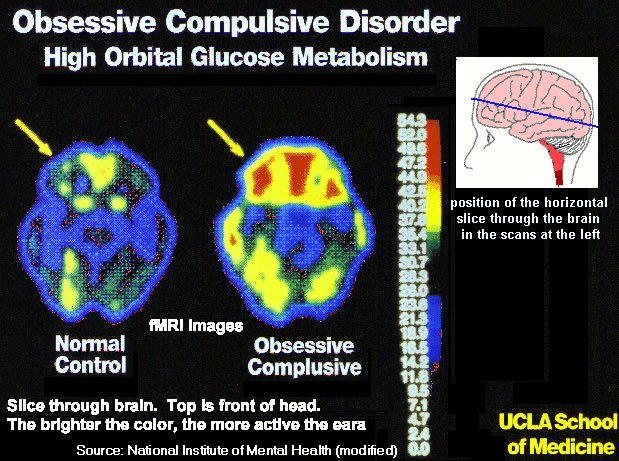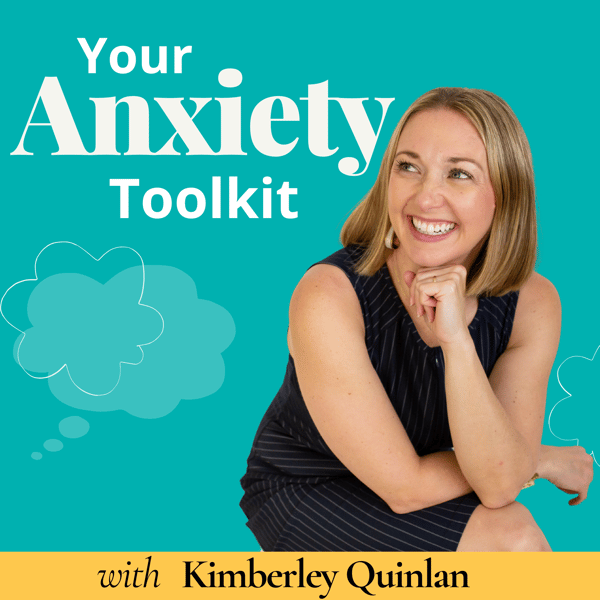Ep. 86: The Science of Exposure and Response Prevention (ERP)
Your Anxiety Toolkit - Anxiety & OCD Strategies for Everyday
Kimberley Quinlan, LMFT | Anxiety & OCD Specialist
4.9 • 802 Ratings
🗓️ 1 February 2019
⏱️ 25 minutes
🧾️ Download transcript
Summary
The Science of Exposure and Response Prevention (ERP)

Welcome back to another episode of Your Anxiety Toolkit Podcast.
Today we are talking about the science behind Exposure and Response Prevention. I know a lot of you have a lot of questions about why we would ever put ourselves in a position to be MORE anxious and MOST uncertain. But, there are many reasons why and today we are going to dive into The Science of Exposure and Response Prevention .
To put it simply, we instinctually we run from fear. We go into fight, flight and freeze when we are faced with serious, dangerous events. In emergency situations, this is the most sophisticated human response. We are so lucky we have this response, as it keeps up alive and well.
However, in our era, we are often bombarded by THOUGHTS of serious, dangerous events and this causes our brain to make mistakes about the imminence of danger. We experience the thought as if it were an imminent threat - right here, danger in close quarters, etc.
The problem is that we react to this thought or sensation or urge as if it IS an imminent threat. We run away, we fight it or we freeze.
What happens when we do this is that we reinforce that the thought IS dangerous and, because we responded in this way, a cycle that is created. Fear --> avoidance response --> fear….and the cycle continues.
So, what can we do instead of fight, flight or freeze? We can stare our fear right in the face. We do this by performing Exposure and Response Prevention. Exposure and Response Prevention includes changing our behavior, or response, to the original thought or obsession and exposing ourselves to our feared consequence. Now, if you hate the idea of this, you are not alone.
In this week's podcast, we address the science behind Exposure & Response Prevention to help motivate and inform you of WHY ERP is so important and HOW it changes our brains. If you need help with this, now is the time to act.
ERP School, our online course that teaches you all the most important components of ERP for Obsessive Compulsive Disorder, is BACK, but act fast because it is only available until February 14th, 2019!
Exposure and Response Prevention School (ERP School) is an online course that teaches you the tools and skills I teach my clients in my office. Let me tell you a little bit about it.
The course is a video-based course that includes modules on
- The science behind ERP
- Identifying YOUR obsessions and your compulsions
- The different approaches and types of ERP, including gradual exposure, writing scripts, interoceptive exposures and how to get creative with ERP
- Mindfulness tools to help you manage anxiety, panic, and uncertainty
- Troubleshoot common questions and concerns
- BONUS 6 videos of the most common subtypes of OCD
The course also includes many downloadable PDF’s and activities to help you navigate how to best apply ERP to your specific obsessions and compulsions.
We are so excited to finally share ERP with you and would love to have you join us and the CBT School Community. It's a beautiful day to do hard things!
If you are worried about doing it alone, please don’t fear. We meet bi-monthly on the FB group and on IG to talk about questions you may have.
Click HERE to sign up.
Transcript
Click on a timestamp to play from that location
| 0:00.0 | This is Your Anxiety Toolkit, episode number 86. |
| 0:09.7 | Welcome to Your Anxiety Toolkit. |
| 0:12.4 | I'm your host, Kimberly Quinlan. |
| 0:14.5 | This podcast is fueled by three main goals. |
| 0:17.8 | The first goal is to provide you with some extra tools to help you manage your anxiety. |
| 0:23.0 | Second goal, to inspire you. Anxiety doesn't get to decide how you live your life. And number three, |
| 0:29.7 | and I leave the best for last, is to provide you with one big, fat virtual hug, because experiencing |
| 0:37.1 | anxiety ain't easy. If that sounds good to you, let's go. |
| 0:45.5 | Well, welcome back to another episode of your anxiety toolkit. I could not be more thrilled to |
| 0:52.1 | have you with me here today. Today, we're digging into the science |
| 0:59.2 | behind exposure and response prevention. So really what we're talking about is the science |
| 1:06.4 | behind why we stare fear in the face. Why? Why do we do that? Why would we do that very hard thing? |
| 1:18.1 | There has to be a reason and we have to have some evidence on why this is so important. |
| 1:23.6 | And so I figured today's as good as any. Let's look a little bit deeper into the science. |
| 1:29.6 | So I think before we get talking about science, I think it's important to understand the biology |
| 1:35.6 | and the way we have come over time and how we've adapted to fear and danger. |
| 1:48.1 | So when we talk and you always hear me saying, |
| 1:51.0 | it's a beautiful day to do hard things and, you know, stay your fear in the face. |
| 1:53.3 | When we talk about that, |
| 1:55.6 | we're really talking about how do we approach and react to our fear. And so like I said, developmentally, |
| 2:06.0 | we have been trained over many, many years to instinctually run from fear, right? We go into what we call |
| 2:17.2 | fight, flight, or freeze, which means we either run away, |
... |
Please login to see the full transcript.
Disclaimer: The podcast and artwork embedded on this page are from Kimberley Quinlan, LMFT | Anxiety & OCD Specialist, and are the property of its owner and not affiliated with or endorsed by Tapesearch.
Generated transcripts are the property of Kimberley Quinlan, LMFT | Anxiety & OCD Specialist and are distributed freely under the Fair Use doctrine. Transcripts generated by Tapesearch are not guaranteed to be accurate.
Copyright © Tapesearch 2025.

